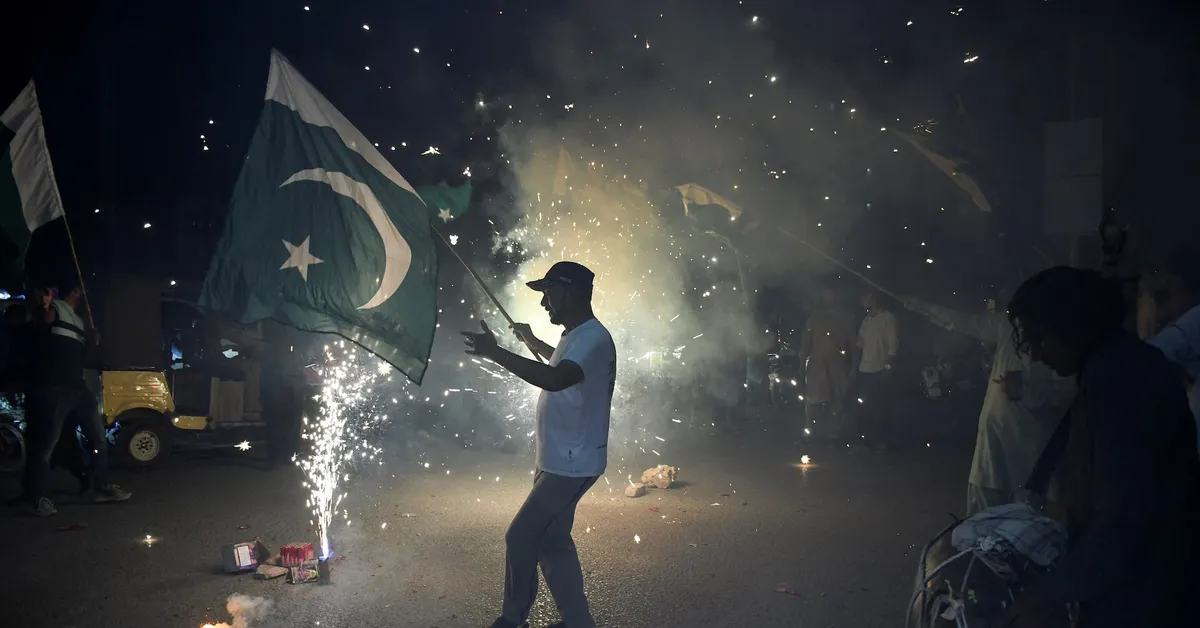
AMRITSAR, India / MUZAFFARABAD, Pakistan, May 11 (Reuters) - A fragile ceasefire is currently holding between India and Pakistan following hours of overnight fighting between the nuclear-armed neighbors. This escalation comes as U.S. President Donald Trump has expressed his commitment to finding a solution regarding the contested region of Kashmir. The ongoing tensions have led to intense exchanges of fire over the past four days, marking some of the most severe clashes in nearly three decades, resulting in the tragic loss of dozens of lives.
A ceasefire agreement was reached after significant diplomatic efforts and pressure from the United States. However, within hours of the agreement, artillery fire was reported in Indian Kashmir, the epicenter of the recent violence. Residents and authorities noted that blasts from air-defense systems echoed through cities near the border, consistent with the previous two evenings of unrest.
On Saturday evening, Indian officials stated that Pakistan had violated the ceasefire agreement, leading the Indian armed forces to be instructed to respond decisively to any further violations. In contrast, Pakistan asserted its commitment to maintaining the ceasefire and accused India of instigating the hostilities.
By dawn, reports of fighting and explosions had subsided on both sides of the border, according to eyewitness accounts from Reuters. Power was restored in the majority of border towns in India after a night of blackout, offering a semblance of normalcy to local residents.
President Trump commended the leaders of both nations for agreeing to halt the hostilities, stating, "While not even discussed, I am going to increase trade, substantially, with both of these great nations. Additionally, I will work with you both to see if a solution can be arrived at concerning Kashmir," he shared on his social media platform, Truth Social.
In Amritsar, a city renowned for the Golden Temple, a significant site for Sikhs, the morning siren signaled a return to daily activities, bringing relief to the community. Local business owner Satvir Singh Alhuwalia, 48, expressed his gratitude, stating, "Ever since the day terrorists attacked people in Pahalgam, we have been shutting our shops very early, and there was an uncertainty. I am happy that at least there will be no bloodshed on both sides."
Reports from Pakistani officials indicated that while there was some firing in Bhimber in Pakistani Kashmir, no casualties were reported. The long-standing conflict between India and Pakistan, both of which emerged from British colonial rule in 1947, has led to three wars, with two of those conflicts centered on the region of Kashmir.
Both countries administer parts of Kashmir but claim the entire territory. India holds Pakistan responsible for fostering an insurgency in its region of Kashmir, which began in 1989 and has resulted in tens of thousands of deaths. Conversely, Pakistan maintains that it only provides moral, political, and diplomatic support to Kashmiri separatists.
The recent skirmishes have led to a combined death toll of nearly 70, according to official sources. Local security guard Guruman Singh from Amritsar shared his family's relief, saying, "More than me, my family is happy because my children and wife have been calling me every hour to check on me. Thank God the ceasefire happened."
This ongoing situation highlights the fragile nature of peace in the region and the urgent need for diplomatic solutions to ensure stability in Kashmir and between India and Pakistan.